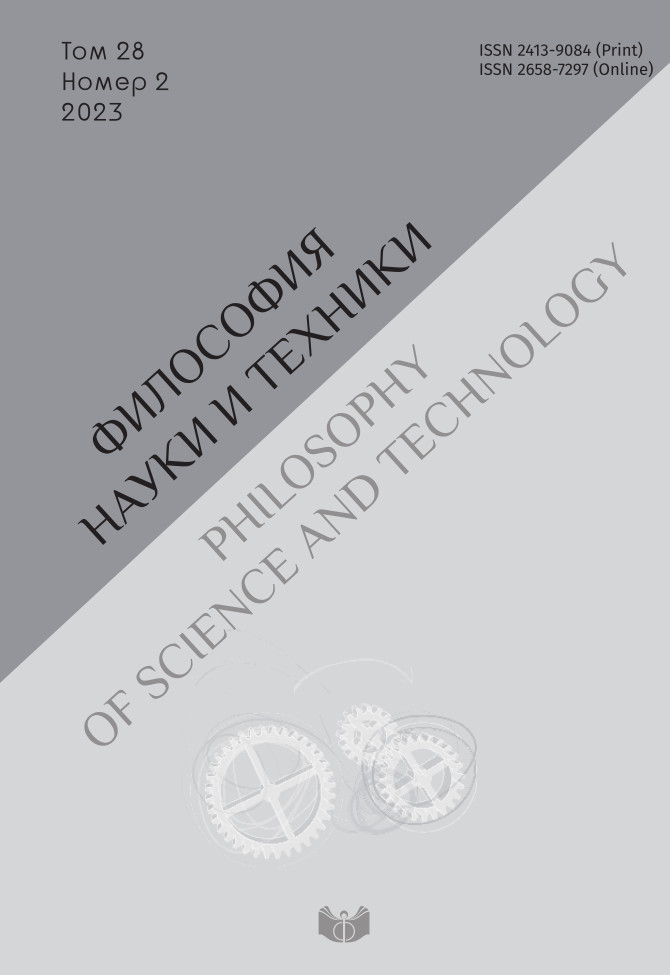New trends in modern Western methodology of science: A. Pickering (analytical review)
DOI:
https://doi.org/10.21146/2413-9084-2023-28-2-142-155Keywords:
“theoretical loading”, paradigm, postpositivism, “old” and “new” physics, traditions, gestalt shift, dualistic worldview, agency, activity, plurality, interactivity, action dance, emergenceAbstract
The review is devoted to the analysis of the concept of one of the most famous Western representatives of the methodology of science of the XX–XXI centuries – A. Pickering. Taking a position close to the supporters of the STS (B. Latour, M. Kallon, etc.), Pickering emphasizes that certain gestalt shifts take place in the history of science, in which the elements of the foreground and background are reversed. Such a shift is the product of a symbiotic association and mutual reinforcement of what was a set of different approaches: a whole range of ways to create theory and conduct experiments combined into a new self-reinforcing whole. According to Pickering’s concept, the sprouts of the “new science” should be sought in the non-dualistic outskirts of culture. Its origins may be in pre-modern traditions, in which man is part of nature, taking care of the environment instead of managing it. There is a certain contrast between the cybernetic ontology and the ontology of modern science with its dualistic vision of a fixed, cognizable and controlled world. In this sense, cybernetic art helps a person perceive the world differently. The sense of agency as “doing something” portends a complex ontological vision of how the world works, a vision quite different from that of the traditional sciences.











